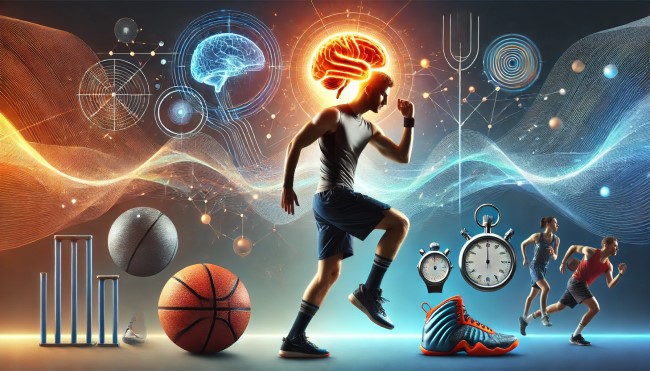The Importance of Sports Psychology: Enhancing Performance and Well-Being in Athletes

Understanding the mental aspects of sports is just as crucial as physical training, if not more so. While physical conditioning, skill development, and tactical knowledge are essential components of an athlete’s success, the psychological side of sports can significantly influence performance outcomes. Sports psychology addresses this critical aspect, offering strategies and techniques to enhance mental strength, focus, motivation, and emotional well-being. By integrating sports psychology into their routines, athletes can achieve a more balanced and holistic approach to training and competition.
Sports psychology plays a vital role in improving athletic performance and overall well-being. It helps athletes manage the mental challenges that come with competitive sports, such as anxiety, stress, and pressure. Additionally, it aids in building mental resilience, enhancing concentration, and maintaining motivation. These psychological skills are indispensable for athletes at all levels, from amateurs to professionals, as they strive to reach their full potential and achieve their goals.
This article explores the importance of sports psychology, shedding light on why it is indispensable for athletes at all levels. We will delve into various facets of sports psychology, including mental toughness, focus, motivation, and emotional regulation. By understanding these elements, athletes can better prepare themselves mentally for the rigors of their sport, leading to improved performance and a healthier, more satisfying sporting experience. Whether you’re an aspiring athlete or a seasoned professional, integrating sports psychology into your training regimen can provide you with the tools needed to excel both on and off the field.
Introduction
Sports psychology is an essential field that focuses on the mental and emotional aspects of athletic performance, recognizing that an athlete’s mind is just as important as their physical capabilities. This discipline encompasses a variety of techniques and strategies designed to help athletes overcome challenges, improve focus, and maintain a positive mindset, all of which are crucial for peak performance. By addressing the psychological components of sports, athletes can enhance their overall performance, resilience, and well-being, making sports psychology a key element in their training regimen.
This article delves into the importance of sports psychology and how it contributes to enhancing both performance and well-being in athletes. The mental side of sports involves understanding and managing the psychological pressures that come with competition, such as anxiety, stress, and the fear of failure. It also includes developing mental skills like concentration, confidence, and motivation, which are essential for consistent high-level performance.
Understanding Sports Psychology
Defining Sports Psychology
What is Sports Psychology?
Sports psychology is a specialized discipline that combines principles of psychology with sports science to enhance athletic performance and well-being. It involves understanding how psychological factors affect physical performance and applying mental strategies to improve focus, motivation, and resilience. Sports psychologists work with athletes to develop mental skills that can be used both in training and competition.
The Role of a Sports Psychologist
A sports psychologist helps athletes deal with the psychological demands of their sport. This includes managing stress, anxiety, and pressure, improving concentration, and building confidence. They also work on goal setting, visualization techniques, and mental rehearsal to prepare athletes for high-pressure situations. By addressing the mental aspects of sports, psychologists help athletes maintain peak performance levels and enjoy their sporting experience.
Enhancing Athletic Performance
Mental Toughness
Mental toughness is a critical component of athletic success. It involves the ability to stay focused, motivated, and resilient in the face of adversity. Sports psychology helps athletes develop mental toughness by teaching them how to handle setbacks, stay composed under pressure, and maintain a positive attitude. Techniques such as mindfulness, self-talk, and cognitive restructuring are often used to build mental resilience.
Focus and Concentration
Athletes need to maintain high levels of focus and concentration during training and competition. Sports psychology provides tools and techniques to enhance these cognitive skills. Practices like goal-setting, attentional control, and pre-performance routines help athletes stay in the zone, minimize distractions, and perform consistently at their best.
Motivation and Goal Setting
Motivation is a key driver of athletic performance. Sports psychologists work with athletes to identify intrinsic and extrinsic motivators that keep them engaged and driven. Effective goal-setting strategies are also employed to set achievable and challenging objectives that provide direction and purpose. By aligning goals with personal values and aspirations, athletes can maintain sustained motivation and commitment.
Promoting Well-Being in Athletes
Managing Stress and Anxiety
Stress Reduction Techniques
Athletes often face significant stress and anxiety, which can impact their performance and overall well-being. Sports psychology offers various techniques to manage these mental health challenges. Relaxation techniques, such as deep breathing, progressive muscle relaxation, and meditation, help athletes reduce stress levels and enhance their mental clarity.
Building Confidence
Confidence plays a crucial role in an athlete’s performance. Sports psychology helps build and maintain confidence through positive reinforcement, visualization, and success tracking. By focusing on past successes and developing a positive self-image, athletes can boost their confidence and perform with greater assurance.
Balancing Life and Sport
Work-Life Balance
Achieving a balance between sports and personal life is essential for long-term well-being. Sports psychologists assist athletes in managing their time effectively, setting priorities, and maintaining healthy relationships outside of their sport. This holistic approach ensures that athletes do not burn out and can enjoy a fulfilling life both on and off the field.
Mental Health Support
The mental health of athletes is as important as their physical health. Sports psychology provides crucial support in this area by addressing issues such as depression, anxiety, and burnout. Psychologists offer counseling and therapy to help athletes navigate these challenges and maintain their mental health.
Summing Up
The importance of sports psychology cannot be overstated. By enhancing mental toughness, focus, motivation, and overall well-being, sports psychology plays a crucial role in the success and satisfaction of athletes. Understanding why sports psychology is important helps in appreciating the holistic nature of athletic development, where mental and physical training go hand in hand. For athletes looking to maximize their potential and enjoy a balanced, fulfilling sporting career, integrating sports psychology into their training regimen is essential.



